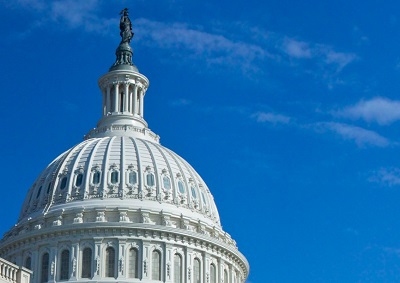Texas May Stiffen Penalties for Pipeline Damage
AUSTIN, Texas (AP) — Lawmakers in Texas are considering a bill that would stiffen penalties for damaging or trespassing around oil and gas operations despite opposition from environmental groups who say it would quell peaceful protests and overly criminalize offenses.

Environmental activists and oil and gas lobbyists returned to the Texas capital on Wednesday to go head-to-head over the bill at a public hearing. There, they clashed over its necessity and whether the bill would suppress Texans' right to legally protest pipeline projects.
The effort comes as states around the country have introduced similar measures targeting demonstrations such as those in North Dakota against the Dakota Access oil pipeline, which resulted in hundreds of arrests and cost the state $38 million.
South Dakota Gov. Kristi Noem signed a pair of bills into law in March aimed at potential protests against the planned Keystone XL oil pipeline and is now facing a federal lawsuit by the American Civil Liberties Union.
The bill sponsored by Republican state Rep. Chris Paddie of Marshall would also classify any oil or gas pipelines as critical infrastructure, placing them in the same category as power plants and water treatment facilities. The bill would extend the penalties to protect any property deemed critical infrastructure.
Sponsor state Sen. Brian Birdwell said current law provides inadequate criminal penalties for people who trespass critical infrastructure facilities and do damage.
"This bill does not impact an entity or group of people's ability to protest peacefully, what it does do is create a deterrent that says if you act upon those interests, or act upon them detrimental to that critical infrastructure, the consequences are appropriate to the nature of that infrastructure," Birdwell said.
The measure would subject those who trespass, damage or destroy the facility, or impair or interrupt operations to a third degree felony with between two and up to 10 years in prison. Organizations found guilty of breaking the law would face a fine of up to $500,000 under another provision in the bill.
Supporters of the bill that passed the state House earlier this month say it would not limit legal protests but would instead ensure safety and security at these facilities.
Related News
Related News

- Keystone Oil Pipeline Resumes Operations After Temporary Shutdown
- Freeport LNG Plant Runs Near Zero Consumption for Fifth Day
- Biden Administration Buys Oil for Emergency Reserve Above Target Price
- Mexico Seizes Air Liquide's Hydrogen Plant at Pemex Refinery
- Enbridge to Invest $500 Million in Pipeline Assets, Including Expansion of 850-Mile Gray Oak Pipeline




Comments